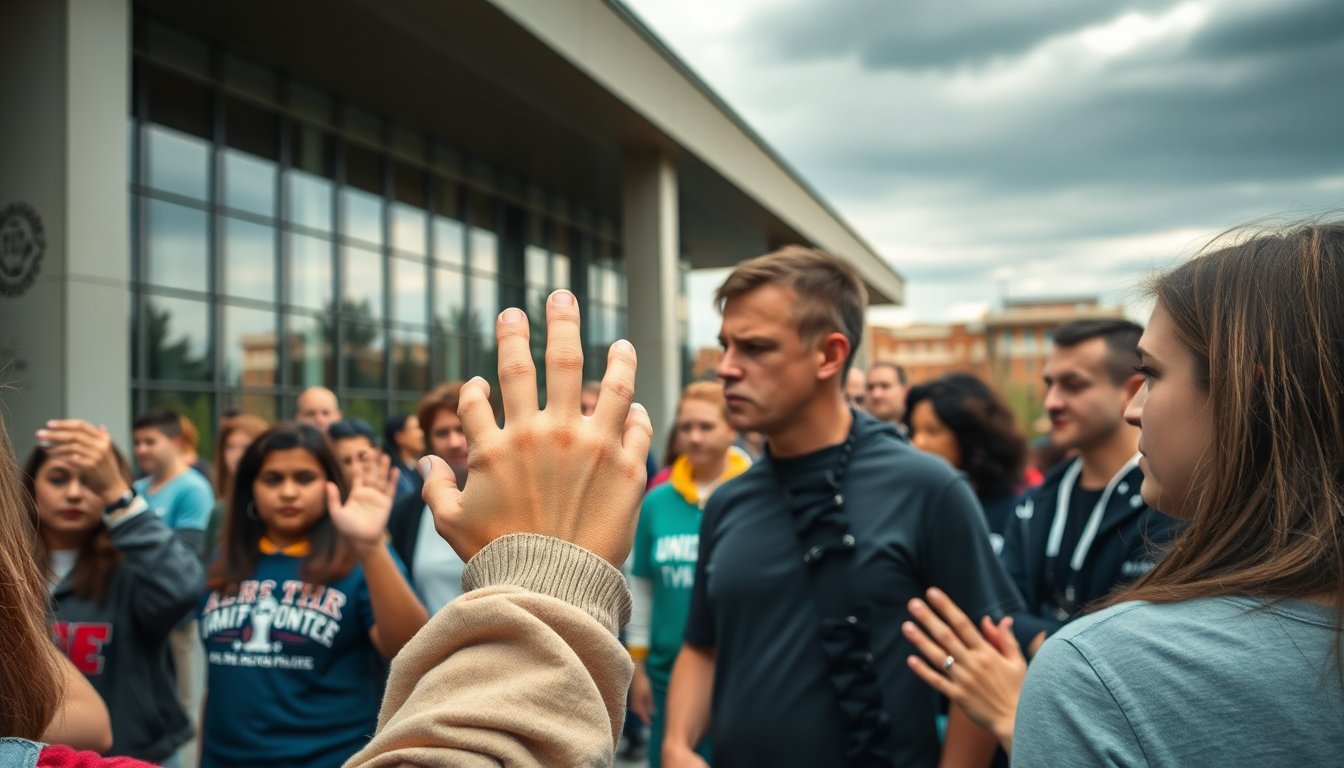Table of Contents
Recent events have highlighted a concerning intersection between politics and violence. The shooting of Charlie Kirk, a prominent conservative commentator, during an event at Utah Valley University, has ignited widespread discussions about the safety of political figures and the current climate of political discourse in the United States. As more details emerge, it is essential to examine the implications of such incidents on both the local community and the broader political landscape.
The Incident: What Happened?
On Wednesday, Charlie Kirk was shot while addressing a crowd at a political event in Orem, Utah. Eyewitness accounts and video footage shared on social media captured the moment when a loud crack, resembling a gunshot, interrupted Kirk’s speech, causing panic among attendees. Reports indicate that a shot was fired from a nearby building, and a suspect has since been taken into custody. Although Kirk was quickly transported to a hospital, his condition remains undisclosed. The FBI has confirmed that agents are on-site, closely monitoring the situation.
The immediate aftermath of the incident has prompted a flurry of reactions from various sectors. Commentators, politicians, and the general public have expressed their concerns regarding the implications of such violence in political settings. This incident serves as a stark reminder of the risks that public figures encounter and raises questions about how political discourse is evolving in an increasingly polarized environment.
The Broader Implications for Political Discourse
This shooting incident has significant consequences, not only for Kirk and those directly involved but also for the political climate as a whole. The atmosphere surrounding political events has become increasingly tense, with threats of violence lurking in the background. This environment can discourage individuals from engaging in political discourse, as fears of confrontation or violence may overshadow their willingness to participate.
Moreover, the media’s coverage of incidents like this can shape public perception and influence political narratives. As the details of the shooting unfold, the coverage will likely focus on implications for political safety, potentially overshadowing discussions about the motivations behind such violence. It is essential to consider how these narratives might further entrench divisions within society, as individuals gravitate toward echo chambers that reinforce their beliefs.
Conclusion: Navigating a Changing Political Landscape
In light of the shooting incident involving Charlie Kirk, it is evident that the political landscape is undergoing significant changes. As society grapples with issues of safety, freedom of expression, and political engagement, it is crucial to foster environments where dialogue can occur without the threat of violence. This incident serves as a wake-up call, urging reflection on the values that underpin our political discourse and how we can create a safer space for all participants.
The future of political engagement will depend on how society addresses these challenges. It is imperative to advocate for constructive dialogue, emphasizing the importance of understanding differing viewpoints while ensuring the safety of all individuals involved in political discourse.


